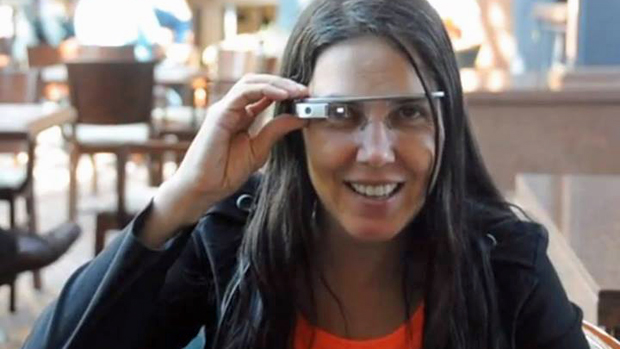Google Glass driver not guilty of traffic offence
Case against Cecilia Abadie dropped as no evidence her device was operating

A free daily email with the biggest news stories of the day – and the best features from TheWeek.com
You are now subscribed
Your newsletter sign-up was successful
CECELIA ABADIE, the Californian woman charged with a traffic offence for wearing Google Glass while she drove, has won her case.
Abadie, who was hit with what was believed to be the world's first traffic citation involving the internet-enabled spectacles, was delighted after a judge ruled that there was no evidence her Google Glass was operating when she was pulled over. She was cited for breaking a California law barring motorists from watching TV while driving.
After the ruling, Abadie, who develops Web and mobile applications, said the glasses do not give drivers any "blind spots", the BBC reports. "I believe we have to start experimenting with devices like this," she said. "A hands-free device is safer than a cell phone."
The Week
Escape your echo chamber. Get the facts behind the news, plus analysis from multiple perspectives.

Sign up for The Week's Free Newsletters
From our morning news briefing to a weekly Good News Newsletter, get the best of The Week delivered directly to your inbox.
From our morning news briefing to a weekly Good News Newsletter, get the best of The Week delivered directly to your inbox.
Abadie was pulled over by a California Highway Patrol officer in October last year as she drove home from work in San Diego. The 'Google Explorer' - so called because she is one of a group of early adopters who have been given pre-release copies of the internet-enabled eyewear - was told initially she had been stopped for speeding. But when the officer noticed she was wearing Glass, he gave her a ticket that said she had violated California Vehicle Code 27602a.
The statute makes it illegal for a motorist to "drive a motor vehicle if a television receiver, a video monitor, or a television or video screen, or any other similar means of visually displaying a television broadcast or video signal that produces entertainment or business applications, is operating".
Google Glass, when it is activated, displays information and images in a virtual display projected at the edge of the user's field of vision. Abadie, who posted a copy of her traffic ticket on her Google+ page, said she was considering fighting the citation in court because her Google Glass was not switched on at the time of the incident.
"I was wearing it because I do wear it all day, but I was not using it," she told San Diego TV station 10news. "A lot of people don't understand how the device works... and the fact that you're wearing it even if the device is turned on doesn't mean that you're watching it or using it actively."
A free daily email with the biggest news stories of the day – and the best features from TheWeek.com
The Guardian said Abadie's case "touches several hot-button issues, including distracted driving, wearable technology that will one day become mainstream, and how laws often lag technological developments". The outcome could have "important ramifications" for the use of Glass by groups such as delivery drivers, who might want to use Glass to get driving directions while on the way to locations.
-
 Why are election experts taking Trump’s midterm threats seriously?
Why are election experts taking Trump’s midterm threats seriously?IN THE SPOTLIGHT As the president muses about polling place deployments and a centralized electoral system aimed at one-party control, lawmakers are taking this administration at its word
-
 ‘Restaurateurs have become millionaires’
‘Restaurateurs have become millionaires’Instant Opinion Opinion, comment and editorials of the day
-
 Earth is rapidly approaching a ‘hothouse’ trajectory of warming
Earth is rapidly approaching a ‘hothouse’ trajectory of warmingThe explainer It may become impossible to fix
-
 Will AI kill the smartphone?
Will AI kill the smartphone?In The Spotlight OpenAI and Meta want to unseat the ‘Lennon and McCartney’ of the gadget era
-
 Has Google burst the Nvidia bubble?
Has Google burst the Nvidia bubble?Today’s Big Question The world’s most valuable company faces a challenge from Google, as companies eye up ‘more specialised’ and ‘less power-hungry’ alternatives
-
 How the online world relies on AWS cloud servers
How the online world relies on AWS cloud serversThe Explainer Chaos caused by Monday’s online outage shows that ‘when AWS sneezes, half the internet catches the flu’
-
 Is the UK government getting too close to Big Tech?
Is the UK government getting too close to Big Tech?Today’s Big Question US-UK tech pact, supported by Nvidia and OpenAI, is part of Silicon Valley drive to ‘lock in’ American AI with US allies
-
 Google: A monopoly past its prime?
Google: A monopoly past its prime?Feature Google’s antitrust case ends with a slap on the wrist as courts struggle to keep up with the tech industry’s rapid changes
-
 South Korea's divide over allowing Google Maps
South Korea's divide over allowing Google MapsTalking Points The country is one of few modern democracies where the app doesn't work
-
 Google avoids the worst in antitrust ruling
Google avoids the worst in antitrust rulingSpeed Read A federal judge rejected the government's request to break up Google
-
 Is AI killing the internet?
Is AI killing the internet?Talking Point AI-powered browsers and search engines are threatening the death of the open web